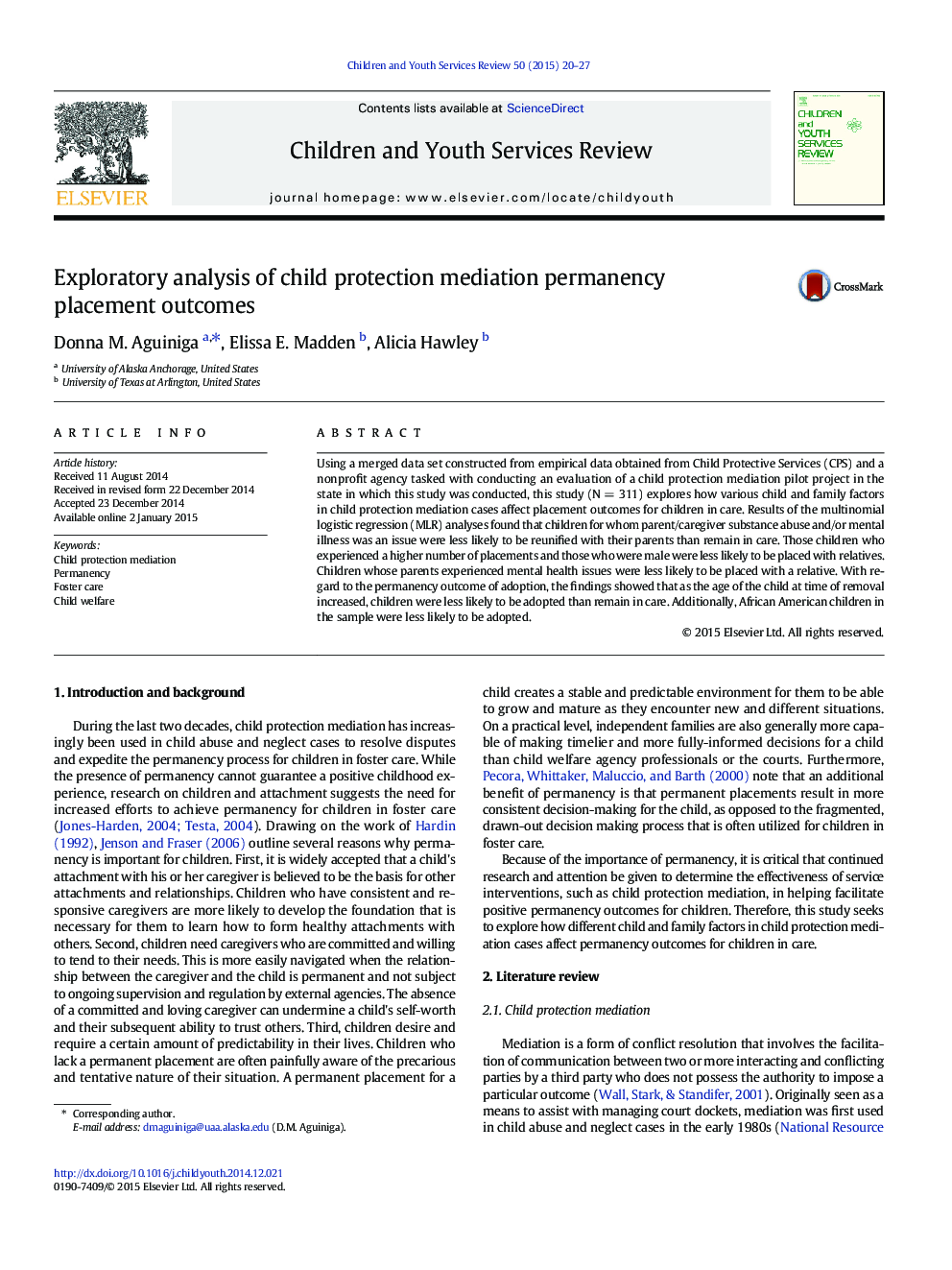| Article ID | Journal | Published Year | Pages | File Type |
|---|---|---|---|---|
| 345982 | Children and Youth Services Review | 2015 | 8 Pages |
•Children whose parents reported substance abuse were less likely to reunify.•Male children and those with more placements were less likely to be placed with relatives.•Children whose parents reported a mental illness were less likely to be placed with a relative or reunify.•Older children were less likely to be adopted than remain in care.•African American children were less likely to be adopted.
Using a merged data set constructed from empirical data obtained from Child Protective Services (CPS) and a nonprofit agency tasked with conducting an evaluation of a child protection mediation pilot project in the state in which this study was conducted, this study (N = 311) explores how various child and family factors in child protection mediation cases affect placement outcomes for children in care. Results of the multinomial logistic regression (MLR) analyses found that children for whom parent/caregiver substance abuse and/or mental illness was an issue were less likely to be reunified with their parents than remain in care. Those children who experienced a higher number of placements and those who were male were less likely to be placed with relatives. Children whose parents experienced mental health issues were less likely to be placed with a relative. With regard to the permanency outcome of adoption, the findings showed that as the age of the child at time of removal increased, children were less likely to be adopted than remain in care. Additionally, African American children in the sample were less likely to be adopted.
